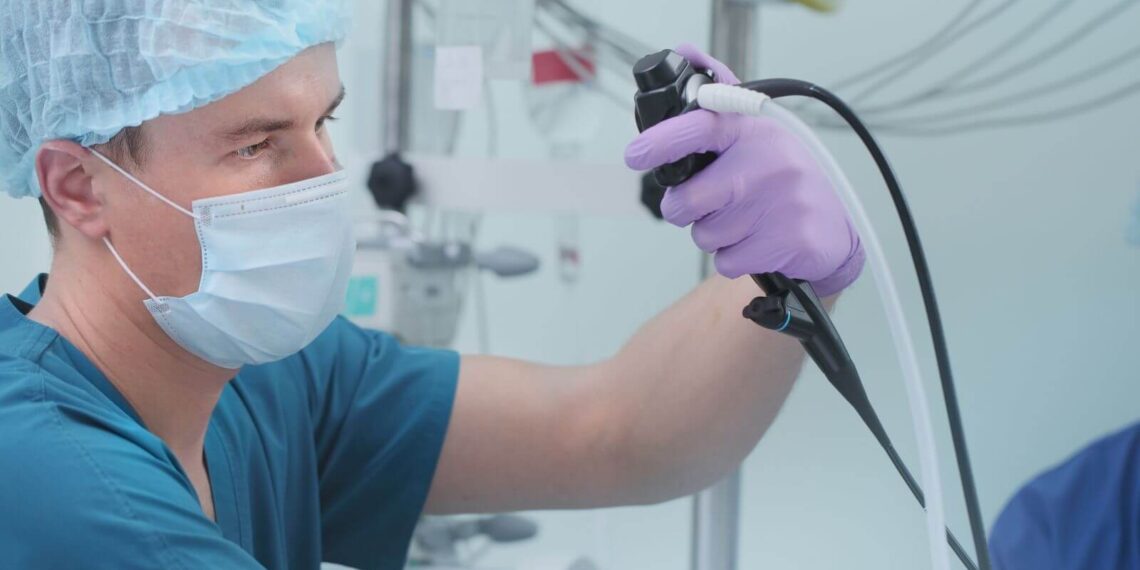Do you have problems with your digestive system? An endoscopy may be required to test for infections and diseases that may cause bleeding, anemia, diarrhea, and inflammation. Endoscopy is a minimally invasive procedure used to determine the cause of your problems by examining your tissues. There are various Katy endoscopy procedures, including colonoscopy, gastroscopy, cystoscopy, bronchoscopy, and many more. Endoscopy can help spot the root cause of an issue, allowing you to take quick measures to prevent further damage to your digestive system. Below are some reasons you might need an endoscopy.
Table of Contents
Stomach/abdominal pain
The main abdominal pain types are:
- Acute
- Chronic
- Progressive pain
Constipation, stomach viruses, indigestion, gas, food poisoning, and even allergies can all cause these pains. Suppose your stomach or abdominal pain keeps returning and does not go away. In that case, you should visit your physician; an endoscopy may be recommended to point out the cause of the persistent pain.
Gastritis, ulcers, or difficulty in swallowing
Acute or chronic gastritis can occur when the stomach lining is inflamed, irritated, or eroded. Excessive alcohol use, stress, chronic vomiting, or medications, including some anti-inflammatory drugs or aspirin, may also cause gastritis. Other causes may be helicobacter pylori, bile reflux, and infections caused by viruses and bacteria, to name a few. Gastritis can lead to blood loss and increase stomach cancer risk if left untreated.
Ulcers develop when you get open wounds in the lining of your stomach or the uppermost part of your small intestines. This occurs when your stomach acids eat away the protective mucus layer on your digestive tract. You may feel a burning pain or discomfort or experience no symptoms at all. Ulcers can lead to internal bleeding. There are two types of stomach ulcers: gastric and duodenal. Ulcers are caused by bacteria, certain pain relievers, alcohol, and smoking cigarettes.
Visiting the doctor will help you know if you have these problems through endoscopy, among other diagnoses.
Digestive tract bleeding
The digestive tract includes the esophagus, stomach, small intestine, colon, rectum, and anus. Bleeding in the digestive system can be a symptom of a problem, but not necessarily the disease itself. Bleeding can be from any part, such as an ulcer on the stomach lining or even colon inflammation.
If you notice unusual bleeding, make an appointment to see your doctor. Various tests will be done to determine the area affected. You will likely get an endoscopy to establish the cause of digestive tract bleeding.
Colon polyps
Growth in the lining of your large intestine or part of your digestive tract can result in colon polyps. Though not harmful, some can develop into colon cancer over time. Colon polyps can be caused by smoking, being overweight, or even inflammatory bowel disease. For this reason, your doctor needs to remove any colon polyps you may have.
Seek medical attention if you notice symptoms like shortness of breath or fatigue, belly pain, blood in your poop, constipation, diarrhea, or bowel movement that has black or red streaks in it. Your doctor may request an endoscopy to establish the polyps’ location and size and if they are a cancer threat and should be removed.
Changes in bowel habits (chronic constipation or diarrhea)
Bowel movements vary from one person to the next. Some people may do it three or more times a day, while others may have it a few times a week. You could encounter fewer or troubled bowel movements, hard or small stools, and belly bloating. The changes, especially when sudden, may signify an underlying concern. Your doctor may recommend an endoscopy to identify the root cause.
Endoscopy is an effective way to determine the problem affecting your digestive tract. When the problem is diagnosed early, appropriate measures to treat the disease can be applied to curb further harm. Call or visit Imperial Digestive Health Specialists PLLC today to learn more about endoscopy and its importance.

